Share

60 Weeks 60 Books
Week 2 The Black Stallion
Season 1, Ep. 2
•
Taking a look at Alec Ramsay, hero of The Black Stallion and how he helped me change my name.
More episodes
View all episodes
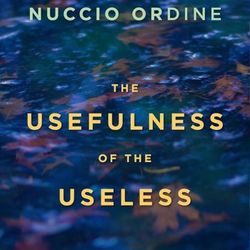
60. Week 60 The Usefulness of the Useless
17:05||Season 1, Ep. 60This book was inspiring enough to make me try my hand at my first YouTube book review. And rereading it made me angrier than ever about the way our world is going: the materialism, the populism, the trivialisation and banality, the excessive worship of money and hectoring charlatans. I could go on, but I urge you instead to read Ordine's book which is an impassioned plea to preserve what is best and wisest about us puny humans.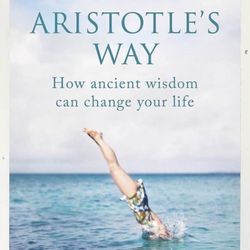
59. Week 59: Aristotle's Way
15:39||Season 1, Ep. 59The penultimate book of this series dates from 2018, but I am still urging it on friends and students for the bridge it provides to timeless ideas. Edith Hall is an eminent academic specialising primarily in Greek theatre, but here explored her devotion to Aristotle despite his less than complimentary approach to women. His ideas about self-knowledge, values and virtues, and of course, about the theatre still resonate, and Edith Hall is a helpful and lucid guide to his thinking.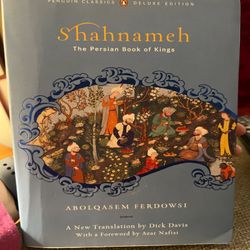
58. Week 58: Shahnameh The Book of Kings
19:14||Season 1, Ep. 58This week, a big fat book full of wonderful stories, dragons, magical birds and super-strong heroes with equally powerful horses. One of the books that makes me think that in school, we really ought to be teaching myth and legend from across the world - there would be enough to keep us busy for all 15 years of formal school.
57. Week 57: The Faraway Nearby
17:26||Season 1, Ep. 57For this week, I almost chose another book, but then I could not - Solnit's exploration of ice, of Arctic Dreams, the subject of one my own earlier podcasts, of Frankenstein and her account of her stay in the Library of Water on an Icelandic peninsula are so compelling, that I found myself reading and rereading.
56. Week 56 Collected Prose, Elizabeth Bishop
17:31||Season 1, Ep. 56Elizabeth Bishop's artistic reputation and legacy seem, rightly, to grow and grow. She won a Pulitzer Prize in the early 1950s, and was a challenging teacher of writing and literature at Harvard and MIT. She died of a brain aneurysm at 68 in 1979, no doubt a product of the booze and fags she packed away during the course of her life. She was also intrepid, insatiably curious about the world around her, and one of the most perceptive observers of all that it is to be a human. The more I read about her and by her, the more I want to read, but there is a limited palette - a relatively slim collected poetry, a thicker, richer collected prose, all driven by an eye at once objective and tender in its delineation of who and what we humans are.
55. Week 55 Othello
18:02||Season 1, Ep. 55Somehow, although the play is called Othello, it often ends up being all about Iago, arguably the most malevolent of all Shakespeare's villains. For a look at the best filmed versions of this terrific play head to ThatReadingWritingThing, where there are links galore.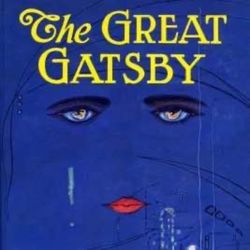
54. Week 54 The Great Gatsby
16:13||Season 1, Ep. 54This week, a book that is 99 years old and grows in stature and authority with every passing year, as its satirical depiction of the super-rich and their destructive impulses gathers authority.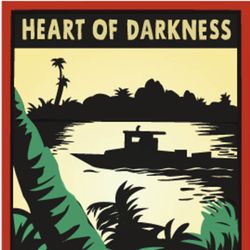
53. Week 53: Heart of Darkness
20:47||Season 1, Ep. 53Conrad's 1898 novella, based on his own experiences as a riverboat captain on his only voyage to the Congo, is today a contested book. Two particular attacks, by Chinua Achebe and Edward Said, level accusations of racism and imperialism at Conrad himself, invoking his regular use of the N-word and his depiction of the Africans that Marlow encounters throughout. Regarding the n-word, that is purely contextual. Conrad was writing at a time when it was common parlance, and it is important for us to understand that there was such a time, whatever our modern sensibilities suggest. Again, with the way that Africans are depicted throughout the novella, it reflects Conrad's own experiences, and the deliberate use he makes of stereotypes throughout the story. The fundamental is that Conrad sees through the hypocrisy and cant of European imperialism and colonialism, and skewers the brutish, undeserved superiority of the white men ripping resources from the country they believed should be their plaything.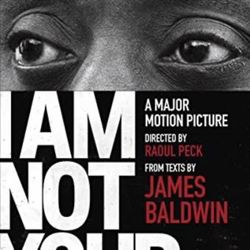
52. Week 52: I am not your Negro
18:52||Season 1, Ep. 52This week marks a year since I began this podcast with one of the most troubling books I have read, a book and documentary that revealed at the end of 2016 just how deep racism runs in the United States. Eight years later, I am even more troubled as we see the rise of divisive, discriminatory populism not just with the resurgence of Trump in the US but in sectarian clashes in India, and the low level persistent vicious attitudes displayed by British politicians towards refugees and asylum seekers. But there is hope.